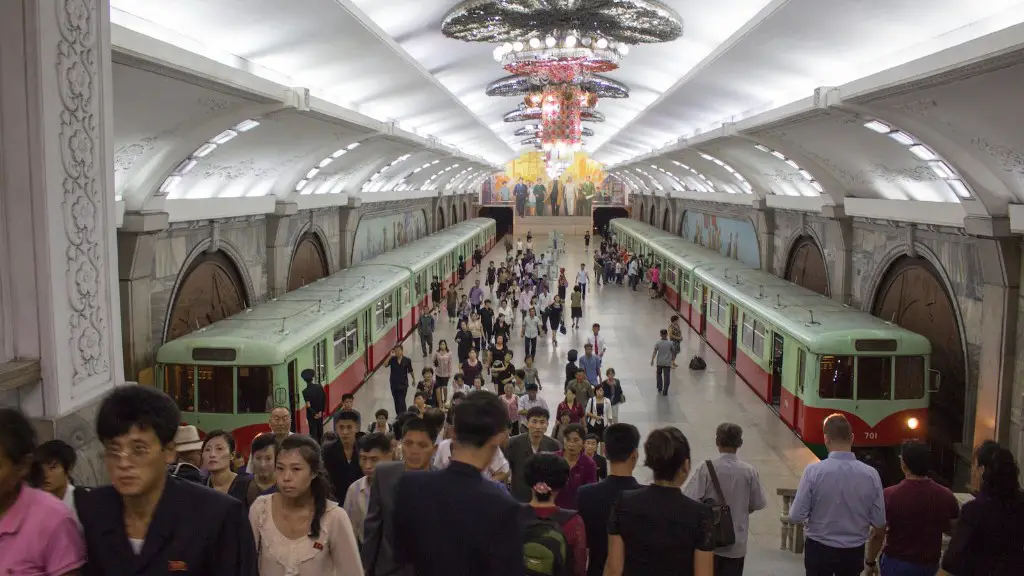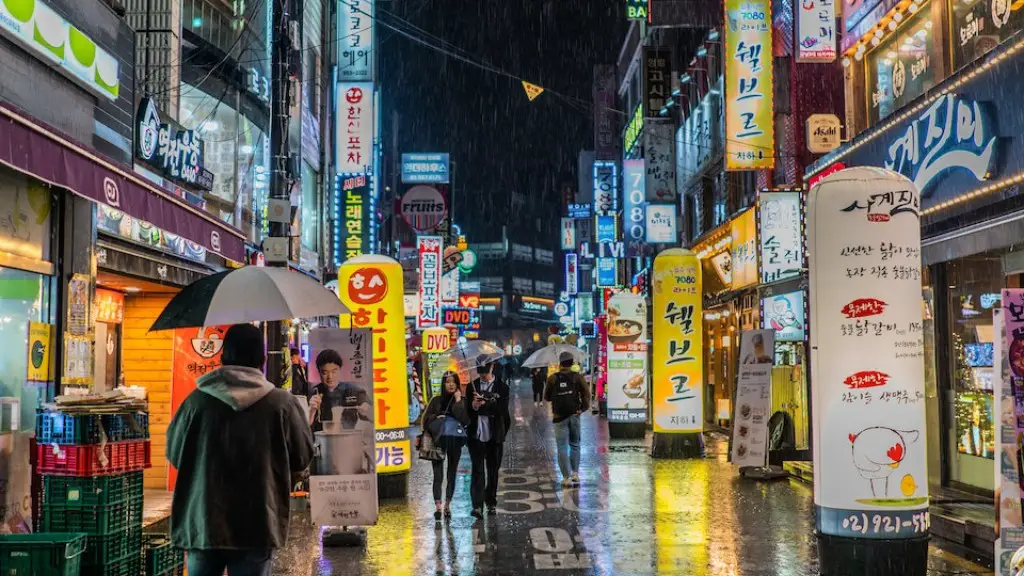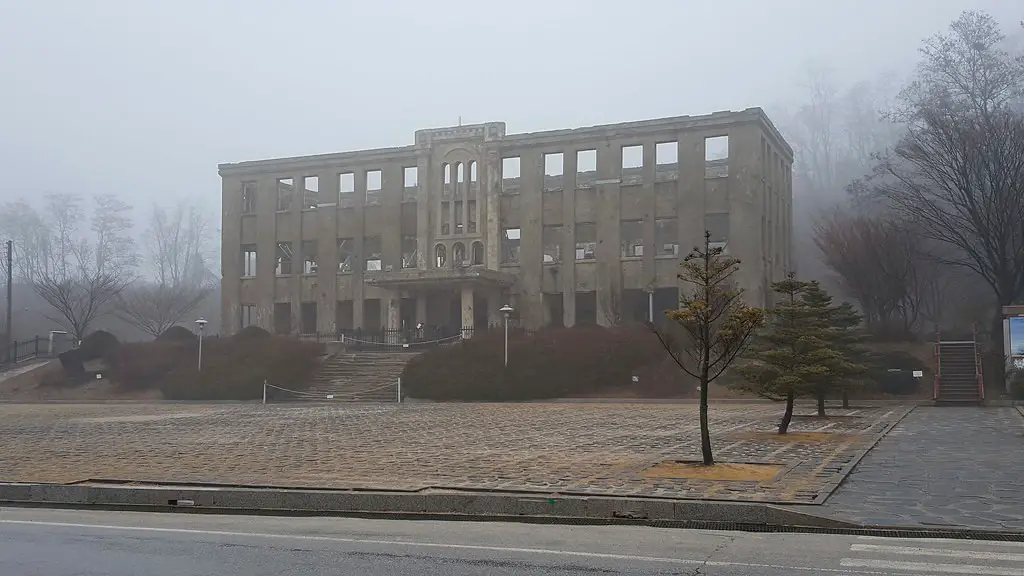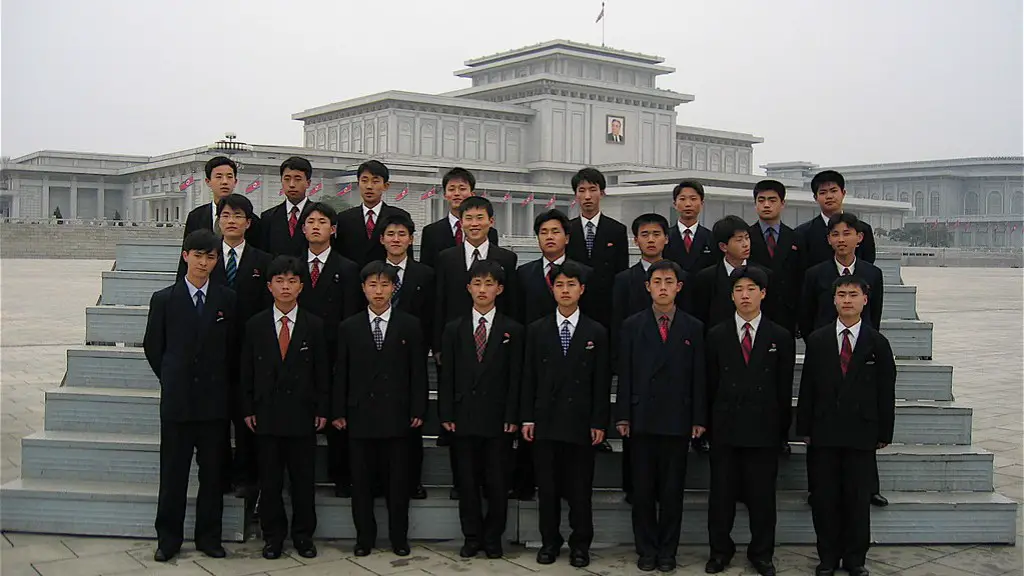Trade and Sanctions
North Korea is one of the world’s most isolated countries and it has been subject to numerous international trade and financial sanctions, imposed over its nuclear weapons and ballistic missile program. In 2009, the United Nations Security Council (UNSC) imposed economic sanctions targeting North Korea’s imports, exports and access to foreign currency. These sanctions were further widened in 2017 to include the banning of North Korean exports of coal, iron ore, seafood and the joint ventures between North Korea and other countries. As of June 2020, the UNSC has been imposing the 11th round of sanctions since 2006.
According to a report by the Center for Strategic and International Studies, these sanctions have significantly reduced North Korea’s exports, from 8.3 billion dollars in 2017 to 2.9 billion dollars in 2019. As a result, the domestic revenue of North Korea has decreased, having had a significant impact on the country. According to the UN, these sanctions exacerbated the already dire food situation in the country and led to a sharp decline in imports, leading to a fall of 15% in food production in 2018. This has had an enormous impact on North Koreans; 63% of North Korean households are food insecure and 48% are facing severe food insecurity.
Under Patched State Control
North Korea is a state-controlled economy, with a strong central government control and rigid price fixing. All aspects of the economy, including production, distribution and pricing, are determined by the state. Private enterprise is strictly limited and subject to heavy taxation, or even prohibition in some cases. This has resulted in a highly distorted economy, and has made it difficult for North Koreans to make ends meet, leaving most reliant on illegal underground markets.
The state controls all major economic activities and decisions, and even individuals who unintentionally breach government economic policies, or simply who criticize the government’s policies, can suffer severe punishment. North Koreans know of no other reality and view the economy as a zero-sum game, with the winner taking all, and the losers faring even worse.
The Cost of International Isolation
The international isolation imposed on North Korea has had a drastic impact on its economy and its people. North Korea is unable to trade with most of the outside world, resulting in a lack of access to modern technology and technology transfer. This has meant that North Korea has not been able to get the technology, resources and capital necessary to modernize its economy. As a result, the North Korean economy remains largely undeveloped and inefficient, with limited foreign investment and outdated infrastructure.
Moreover, due to the ongoing international conflict between North Korea and the US and its allies, the country has been unable to access loans and international financial assistance, due to US economic sanctions and restrictions. This has had a negative impact on the North Korean economy, making it more difficult for the country to pay off its debts or gain access to the resources it needs in order to modernize and develop economically.
Living In a Culture of Fear
The authoritarian regime in North Korea has created a culture of fear and repression. The government has used fear tactics to crush any form of dissent, using harsh punishments, such as exile, imprisonment and execution, as a means of maintaining control. This has led to an atmosphere of fear and oppression, as North Koreans fear repercussions for speaking out against the government or even for expressing their opinion on certain matters.
Moreover, the North Korean government has a strict system of surveillance, with citizens monitored and controlled by the state. The government monitors all forms of communication, including the internet, and there is a general sense of censorship, with the government carefully controlling the information that North Koreans can access.
Human Rights Violations
The North Korean government has been widely criticized by the international community for its human rights abuses, particularly its severe violation of the rights of its citizens. According to a report by the United Nations Commission of Inquiry, North Korea is responsible for some of the worst human rights abuses in the world, including: arbitrary detention, torture, extrajudicial executions, abduction and enslavement.
Moreover, North Korea has one of the most rigid censorship regimes in the world and its citizens are denied access to any form of free expression. The regime has also been criticized for denying its citizens access to medical care and denying access to education.
The Impact of International Help
In recent years, the United Nations and the international community have increased their focus on North Korea and have taken steps to improve the situation. Several international organizations, including the UN, the World Food Programme and the International Atomic Energy Agency, have sought to provide humanitarian aid to North Korea, as well as to support its development.
Moreover, the international community has urged the North Korean regime to end its human rights abuses, to end its nuclear weapons and ballistic missile programs, and to open up to the outside world. The recent changes in international relations between North Korea and the US have increased the prospects for peace and stability in the region.
Catalysing Change Through Dialogue
In recent years, the international community has employed a dialogue-based approach to dealing with North Korea. This approach enables international organizations, such as the United Nations, to engage in dialogue with North Korean officials and to attempt to persuade them to take certain steps towards decarbonization and international openness.
The dialogue approach has been credited with helping to bring the nuclear crisis in North Korea to an end and some progress has been made in recent years on the nuclear and human rights front. However, the nuclear and human rights crisis in North Korea remains unresolved and continues to be one of the major sources of international tension.
The Life of a North Korean Citizen
As a result of these international sanctions, the life of an average North Korean citizen is far from easy. The majority of North Koreans face poverty, malnutrition and a lack of access to basic services. Moreover, due to the severe restrictions, North Koreans lack access to the rest of the world, and the government exercises strict control over the media and information remains heavily censored.
The North Korean population also faces severe restrictions on their freedom of movement, speech and assembly and the country has a harsh prison system, with political prisoners facing arbitrary detention, cruel and inhumane treatment. In addition, the government uses the penal system to prevent citizens from voicing their opinions or challenging the government in any way.
North Korea’s Nuclear Weapons Program
North Korea has been developing its nuclear weapons and ballistic missile program for decades, in defiance of international law and UN Security Council resolutions. The weaponization of nuclear technology has been seen as a symbol of North Korea’s strength and it has been used as leverage to gain diplomatic and economic concessions from the international community, as well as a means to deter potential adversaries.
However, the North Korean nuclear program has increased tensions in the international community and heightened the risk of conflict. This has led to the imposition of numerous economic sanctions, and has had a significant impact on the North Korean economy, as well as the lives of North Korean citizens.
The Possibility of Reintegration Into the Global Community
As a result of the ongoing diplomatic efforts, there is a growing sense of optimism that North Korea may rejoin the global community in the near future. However, the situation remains fragile and there is still much to be done if North Korea is to become a normal state again.
The international community will need to continue to engage in dialogue with North Korea and to apply pressure where necessary, in order to ensure that the regime takes concrete steps towards disarmament and international openness. There will also need to be concerted international effort to provide humanitarian aid and to address the country’s long-standing economic and social issues.
The Impact of Cultural Exchange
In recent years, North Korea has opened up to increased cultural exchange, with the regime allowing films, music and literature from other countries to be imported and broadcast in North Korea. This has allowed North Koreans to have somewhat greater access to the outside world, compared to previously.
In addition, the North Korean government has also allowed the opening of special economic zones, which are aimed at encouraging foreign investment and allowing North Koreans to gain access to modern technology, resources and capital. This has led to the emergence of a small but growing middle class in North Korea and has allowed North Koreans to improve their economic circumstances and quality of life.
A Growing Movement For Change
Despite the ongoing repressive situation in North Korea, there are signs that the country is slowly beginning to change. Increasingly, North Koreans are becoming more aware of their rights and are calling for greater freedoms and more openness.
There have been several recent grassroots protests and demonstrations calling for the end of repressive government policies and a return to international openness. Moreover, North Koreans are beginning to make use of social media and the internet as a means of connecting with the outside world and voicing their opinions.
The Challenges Still Ahead
Although there are signs of progress, there are still significant challenges ahead. The regime remains entrenched and unwilling to make any major changes to its policies and there is still no sign of real progress on the nuclear front or an end to the severe human rights abuses.
Moreover, the ongoing economic sanctions have pushed the already fragile economy to the brink of collapse, and the situation of the average North Korean citizen has deteriorated significantly. The international community will need to continue to provide humanitarian aid and to press the North Korean regime to take meaningful steps towards disarmament and international openness, if North Korea is to ever emerge from isolation.



